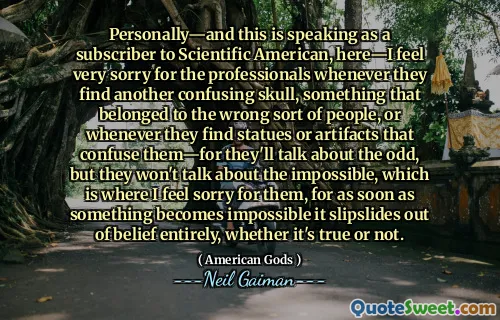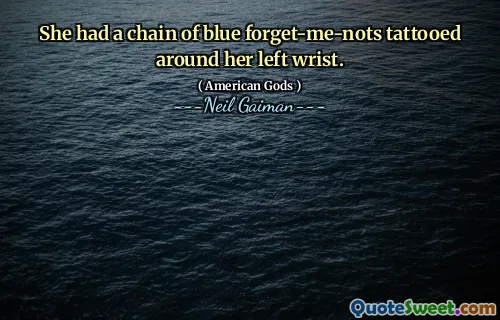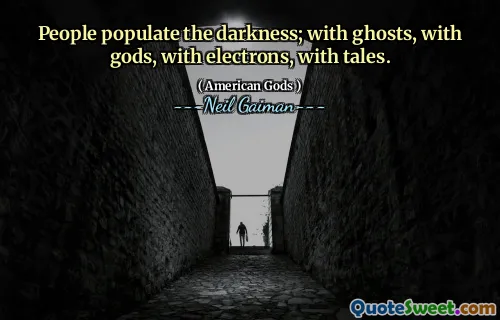
The TV's the altar. I'm what people are sacrificing to. "What do they sacrifice?" asked Shadow. "Their time, mostly," said Lucy. "Sometimes each other."
This quote highlights the modern dynamics of obsession and distraction within contemporary society. The television, depicted as an altar, symbolizes a form of worship—something that captures our attention, devotion, and even our lives. By comparing the TV to an altar, the statement suggests that we revere screens and media through which we often consume and idolize various content, sometimes at the expense of genuine human interactions and personal development.
The conversation between Shadow and Lucy underscores a broader commentary on how our priorities are often misplaced. Sacrificing time for entertainment, social media, or trivial pursuits can lead to a disconnect from more meaningful experiences or relationships. The phrase 'sometimes each other' hints at the erosion of connection and empathy among people, replaced by superficial engagement with screens that offer instant gratification but lack depth.
In today's digital age, this concept feels even more relevant. The devices and media we consume act as virtual altars, demanding our attention and devotion. The act of sacrificing time and attention for screens can lead to loneliness, reduced empathy, and a diminished sense of community. This quote pushes us to reflect on how we allocate our time and whether our modern 'altar' enhances or diminishes our human experience.
Neil Gaiman's work often explores the mythology and symbolism underlying everyday life, and this quote exemplifies his critique of modern consumerism and media saturation. It challenges us to consider what we worship in our daily lives and how that shapes our relationships and self-awareness.











